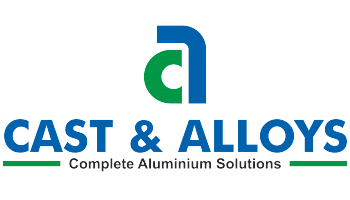Welcome to the fascinating world of aluminum forging. The process of aluminum forging involves heating aluminum billets and shaping them under compressive force to produce lightweight, durable, and robust components. It’s widely used in industries where strength-to-weight ratio is crucial, such as aerospace and automotive.
A great degree of accuracy, skill, and attention to detail is needed when crafting aluminum through forging. This blog post will delve into the critical measures necessary to maintain consistency in aluminum forging processes.
Importance of Forging in Manufacturing
Forging has many benefits over other production processes, including superior mechanical qualities, greater fatigue resistance, and extraordinary strength. It’s an indispensable step in the manufacturing of critical components that demand extraordinary dependability and performance.
The Crucial Role of Consistency
Consistency is key in aluminum forging. It ensures that every part produced meets strict quality standards, guaranteeing reliability and performance. Without consistency, products may suffer from defects or fail to meet specifications, leading to costly rework or even safety issues.
Challenges in Achieving Consistency
Although aluminum forging has numerous advantages, consistency is an issue when using it. The final product’s uniformity and performance can be affected by variables like material quality, pressure management, and temperature control.
Essential Steps to Maintain Consistency
-
Quality of Raw Materials
Choosing the appropriate aluminum alloy for your particular application is the first step toward consistency. Properties including strength, resistance to corrosion, and machinability differ throughout alloys. Conduct thorough research or consult with materials experts to determine the most suitable alloy for your forging requirements.
Using high-quality, uniform materials sets a solid foundation for achieving consistent results. Our team at Cast & Alloys sources aluminum billets from reputable suppliers who adhere to strict quality standards. This ensures that every part we produce meets our customers’ expectations.
-
Precision in Shaping and Forming
Precision is key in aluminum forging. Even minor variations in shaping and forming can affect the part’s dimensional accuracy and mechanical properties. To guarantee that every item we create satisfies the highest requirements of consistency and precision, we invest in cutting-edge forging dies and tooling in addition to strict quality control procedures.
-
Die Design and Maintenance
Well-designed forging dies are essential for achieving consistent shapes and dimensions in aluminum forging. Invest time and resources in the design phase to optimize die geometry for uniform metal flow and minimal stress concentrations.
At Cast & Alloys, Regular maintenance of dies is critical to prevent wear and maintain dimensional accuracy over time. Periodic inspections and refurbishments are performed regularly which help in extending die life and ensuring consistent part quality.
-
Process Monitoring and Control
Implementing robust process monitoring and control systems is essential for detecting deviations and maintaining consistency in aluminum forging operations. Automated control systems can adjust process variables in real time to compensate for variations and ensure consistent forging outcomes.
At Cast & Alloys, we have sensors, advanced data acquisition systems, and real-time feedback mechanisms to monitor key process parameters such as temperature, pressure, and deformation rates, that help in maintaining consistency.
-
Temperature Control during Forging
Temperature control is crucial in aluminum forging to maintain the desired mechanical properties and dimensional accuracy of the final product. Consistent heating and cooling processes are essential to prevent defects like cracks, voids, or uneven grain structures.
Maintaining precise temperature control is essential. At Cast & Alloys, we use advanced furnaces and temperature monitoring systems to ensure that the metal remains within the ideal forging range throughout the process.
-
Pressure and Force Management
Controlling the pressure and force applied during forging is critical for achieving uniformity and avoiding defects such as voids or cracks. Our skilled technicians are trained to monitor and adjust the forging parameters in real time to ensure consistent results.
-
Quality Control Measures
Implementing stringent quality assurance protocols to verify the integrity and consistency of forged aluminum components. Quality control is ingrained in everything we do at Cast & Alloys. Regular inspections, dimensional checks, and non-destructive testing are done regularly to identify any deviations from specifications.
We have established clear quality criteria and conducted thorough inspections at each stage of the forging process to detect and address any issues promptly. Statistical process control techniques are also utilized to analyze data and identify opportunities for process optimization and improvement.
-
Operator Training and Skill Development
Skilled operators play a vital role in achieving consistency in aluminum forging. At Cast & Alloys, we provide comprehensive training programs to equip operators with the knowledge and skills required to operate forging equipment effectively. Adequate practices, safety protocols, and quality standards are emphasized to instill a culture of excellence and attention to detail among your workforce.
We believe in Continuously investing in skill development and offer opportunities for ongoing training to keep operators updated on the latest techniques and technologies.
Conclusion
Consistency in aluminum forging is not merely a goal; it’s a necessity for achieving excellence in product quality and performance. At Cast & Alloys, achieving consistency is our top priority. From our commitment to quality and precision to our investment in advanced technologies and skilled labor, we’re dedicated to delivering excellence in every part we produce.
By focusing on material selection, temperature control, die design, process monitoring, operator training, and quality assurance, we can establish robust processes that yield consistent results. We Embrace a culture of continuous improvement and innovation to stay ahead in the competitive landscape of aluminum forging.
With dedication, expertise, and attention to detail, mastering the art of consistency in aluminum forging is within reach and this sets Cast & Alloys apart from the competition.
If you consider your aluminum forging needs, we encourage you to prioritize consistency and quality above all else. Choosing a trusted partner like Cast & Alloys can make all the difference in ensuring the success of your projects. Contact us at https://www.cast-alloys.com/contact-us/ Now to discuss your aluminum forging needs and experience the Cast & Alloys difference firsthand.




